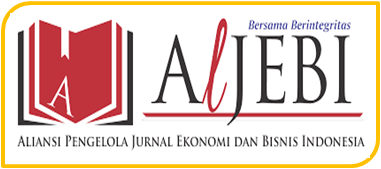Waste Management Based on Maqashid Shari'ah And Circular Economy: Evidence in Blitar Regency
Abstract
The study of waste management based on maqashid shari'ah and circular economy requires a study to realize wise and Islamic waste management. This research comes with the aim to find out and analyze waste management based on maqashid shari'ah and circular economy in TPST 3R Blitar Regency, namely TPST 3R "Abdi Karya mandiri" and TPST 3R "Punokawan". This research uses a qualitative approach with this type of case study research because this study examines an event that occurs today, which is related to waste management based on maqashid shari'ah and circular economy. Data excavation methods use observation, interview and documentation methods. In this study it was found that maqashid shari'ah-based waste management in TPST 3R Blitar Regency indirectly meets the five main elements of shari'ah maqashid, namely hifzh al-din, hifzh al-nafs, hifz al 'aql, hifzh hifzh al-nasl, and hifzh al-mal. Then in circular economy-based waste management at TPST 3R Blitar Regency produces sustainable and renewable products that are indirectly in accordance with the circular economy concept. This is because the waste management and processing system in the two TPST 3R has a rotating and interconnected production flow from upstream to downstream.
Keywords
Full Text:
PDFReferences
Baqi, M. F. A. (2017). Shahih Bukhari Muslim. Kompas Gramedia.
Busyro, B. (2019). Maqashid al-syariah : pengetahuan mendasar memahami maslahah. Prenadamedia.
Chapra, M. U. (2008). Development in the Light of the Maqasid Al-Shari’ah. Islamic Research and Training Institute.
Ghosh, S. K. (Ed.). (2020). Circular Economy: Global Perspective. Springer Singapore. https://doi.org/10.1007/978-981-15-1052-6
Ibrahim, R., Mulyo, A. M. T., & Fatimah, L. (2017). Konsep Ramah Lingkungan dalam Perspektif Alquran, Hadis, dan Kitab Kuning di Pesantren. MADANIA: JURNAL KAJIAN KEISLAMAN, 21(2), 209. https://doi.org/10.29300/madania.v21i2.578
Mutawali, M. (2017). Maqashid Al-Syari’ah : Logika Hukum Transformatif. Jurnal Schemata, 6(2), 117–139.
Nurhayati, & Sinaga, A. I. (2018). Fiqh dan Ushul Fiqh. Prenadamedia.
Waste Management, 1 (2008). https://peraturan.bpk.go.id/Home/Details/39067/uu-no-18-tahun-2008
Rizos, V., Tuokko, K., & Behrens, A. (2017). The circular economy, a review of definitions, processes and impacts. In Centre for European Policy Studies (Brussels, Belgium) (2017/08). https://www.ceps.eu/wp-content/uploads/2017/04/RR2017-08_CircularEconomy_0.pdf
Sariatli, F. (2017). Linear Economy Versus Circular Economy: A Comparative and Analyzer Study for Optimization of Economy for Sustainability. Visegrad Journal on Bioeconomy and Sustainable Development, 6(1), 31–34. https://doi.org/10.1515/vjbsd-2017-0005
Sodiqin, A. (2012). Fiqh dan Ushul Fiqh: Sejarah, Metodologi dan Implementasinya di Indonesia. Beranda Publishing.
Syarifuddin, A. (2009). Ushul Fiqh. Kencana Prenada.
DOI: https://doi.org/10.18860/miec.v1i2.15818
Refbacks
- There are currently no refbacks.

This work is licensed under a Creative Commons Attribution-ShareAlike 4.0 International License.
Editorial Office:
Megawati Soekarnoputri Building
Faculty of Economics
Jln. Gajayana 50 Telp (0341) 558881
E-mail: m-iecjournal@uin-malang.ac.id
Universitas Islam Negeri Maulana Malik Ibrahim Malang
Member of:
Indexed by:
M-IEC Journal under a CC BY SA 4.0 International License.
View My Stats
























